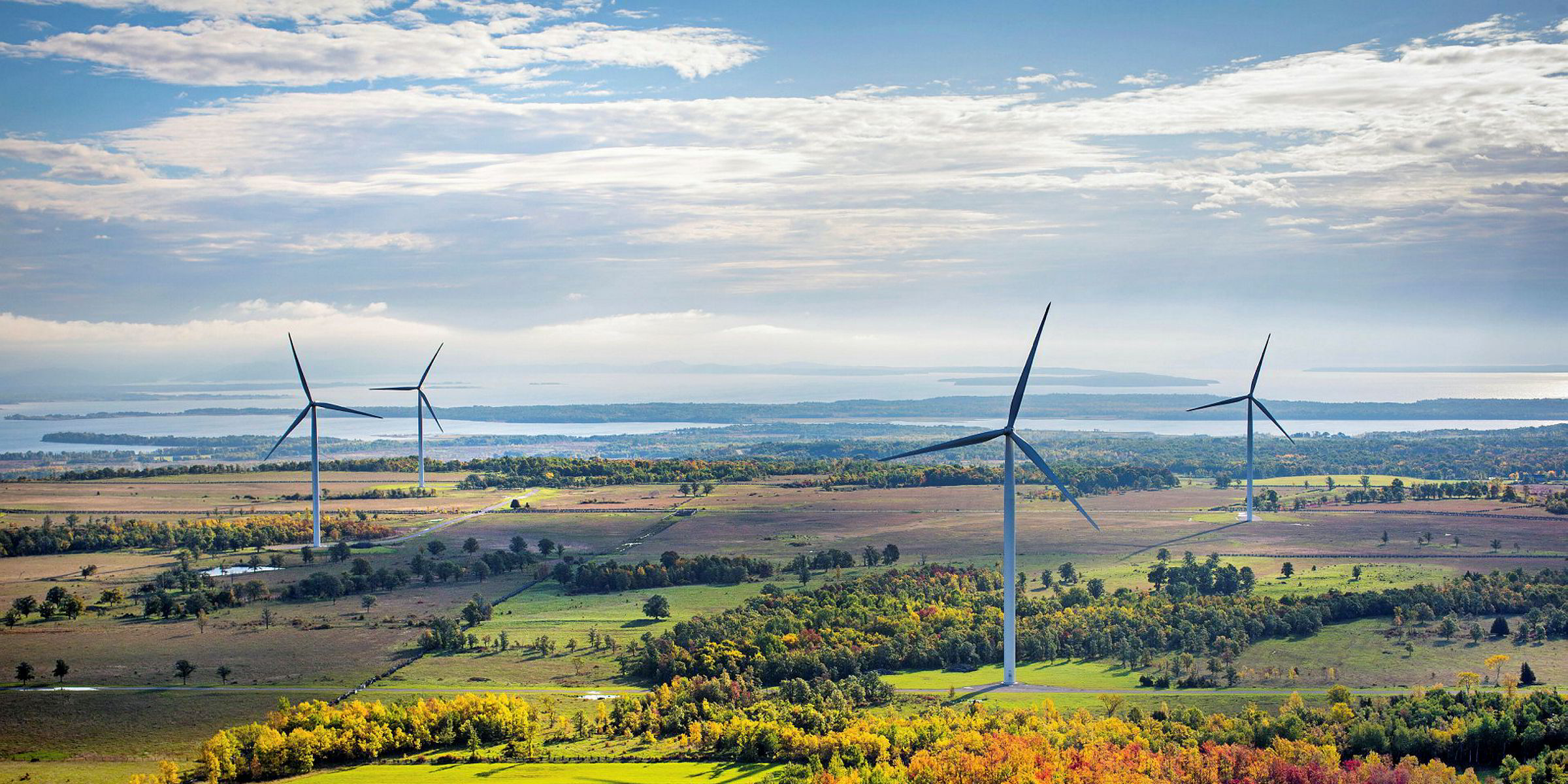Ontario’s new conservative government has cancelled hundreds of renewable-energy contracts for as-yet-unbuilt projects, including three large-scale wind projects backed by developers RES, Invenergy and Boralex that won contracts in the Canadian province’s landmark competitive renewables procurement in 2016.
Sworn in just two weeks ago as Ontario’s new premier, Doug Ford of the centre-right Progressive Conservative party has wasted no time in taking a sledgehammer to the province’s energy and climate policies, claiming to be delivering on campaign promises to reduce energy bills.
Having already singled out German developer Wpd's under-construction White Pines wind project for cancellation, Ford’s government delivered another blow to the industry at the end of last week, announcing it will “cancel and wind down” more than 750 existing renewables contracts, including a number of winners from the province’s Large Renewable Procurement (LRP) concluded in March 2016.
Among the LRP contracts on the cancellation list are the 57.5MW Strong Breeze wind project backed by developer Invenergy; the 50MW Otter Creek wind project, owned by RES Canada, Boralex and the Walpole Island First Nation; and the RES-backed 32MW Eastern Fields wind project.
These are among the lowest priced wind projects ever seen in the province, having come out of a highly competitive procurement process, notes Brandy Giannetta, the Canadian Wind Energy Association’s regional director for Ontario.
“The government has taken some strong action against renewable-energy contracts,” Giannetta tells Recharge. “We’re not entirely sure if there’s more to come or what the long-term ramifications will be.”
In an emailed statement, Boralex said it will "evaluate its options" for the Otter Creek project, due on line in 2019 in southwestern Ontario.
"We are disappointed by the government’s decision to wind down the LRP1 contract of this project, which is meant to create made-in-Ontario electricity and made-in-Ontario jobs," says Boralex chief executive Patrick Lemaire.
Not all of the winning projects from the 2016 LRP have been cancelled, with EDPR’s 100MW Nation Rise wind project apparently not on the chopping block, among other examples.
Ontario’s government says the cancelled projects were chosen because they had not met development milestones, and claims the cancellations will save ratepayers C$790m ($602m) over the 20-year terms of the contracts.
But Giannetta says it's not entirely clear how the government decided which projects to cancel, “whether it was driven by financial compensation considerations or if there was another measure or metric they’re applying”.
“We’re trying to track and monitor where this is coming from, and how things are being determined," she says.
The government also cancelled contracts for a number of winning LRP solar projects, in addition to hundreds of projects with feed-in tariff deals secured earlier in the provincial market's evolution – mostly small solar developments, but also onshore wind, biomass, biogas and hydro projects.
The full list of cancelled projects would have added up to around 440MW of capacity, according to the Globe and Mail newspaper.
The cancellations were announced separately from the government's pledge earlier last week to pursue “urgent legislation” that would kill off Wpd’s White Pines wind project. Wpd told Recharge last week that it intends to continue building the project.
Ford’s government has criticised its predecessor’s decision to grant White Plains a notice to proceed during the election period.
Ontario is Canada’s leading province for installed wind capacity by far, with around 5GW in operation for a population of 14 million. But even before the recent election the provincial renewables market was in the doldrums, the result of an oversupply of electricity that resulted in the scrapping of a planned second LRP round in late 2016.
Last year Siemens Gamesa announced it would shut its blade plant in Ontario, as the Canadian wind industry turns its sights towards blossoming markets in the western provinces of Alberta and Saskatchewan.
Giannetta says that while the picture may be gloomy right now for Ontario's wind market, "we will have a need for new energy supply in the early to mid 2020s".
The cost declines seen in Alberta's historic first renewables tender will bolster wind's chances in eastern Canada in the 2020s, she says.
Correction: Original story referred to wpd's project as White Plains. Its name is White Pines.


